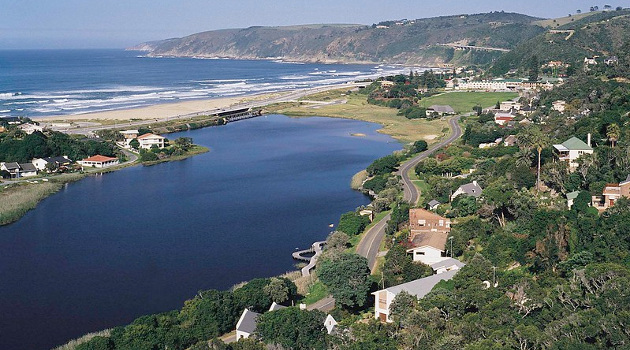You can find examples of libertarianism in some very unexpected places.
What’s particularly interesting are the examples of how private governance is evolving in developing nations.
These are real-world example of “anarcho-capitalism” and they exist for the simple reason is that governments have utterly failed to provide core “public goods” such as crime control.
Now we have a new case study. The U.K.-based Economist reports on the development of a “private parallel state” in South Africa.
Situated in the north of Johannesburg, Steyn City has shops, a school, generators, a petrol station, golf, 50km of biking trails, fishing dams, 24-hour security and a dinosaur-themed playground. There is even a helipad; but residents need never leave. …estates like Steyn City, which account for nearly one in five property transfers (a proxy for sales)…represent a broader demand: for a sanctuary in a country where the state cannot seem to curb crime or provide decent services. And it is not just the rich who are fending for themselves. So, increasingly, is everyone else.
Incidentally, we have similar “estates” in the United States, such as The Villages in Florida and other private communities and residential developments.
But let’s focus on South Africa and why people are opting for private alternatives to government.
The article notes that a growing number of citizens are choosing private schools (akin to what’s happening in India).
Since 1997 the number of pupils in private schools has tripled, from 236,000 to 703,000… The increase is not happening in the most expensive schools, which are, in fact, becoming easier to get into, because so many well-heeled South Africans are emigrating. “The growth is in the low-to-mid range of the market,” says Lebogang Montjane, the head of the Independent Schools Association. …Private fees are priced to be affordable for the black middle class. Spark costs 28,050 rand ($1,800) a year for primary school.
There is also a section on private health care.
But the part about public safety is even more remarkable.
Security is the clearest case of where private companies are replacing the state. In 1997 there were roughly as many police officers (110,000) as active security guards (115,000). Since then officer numbers have increased by 31% (to 144,000) but the number of private guards has ballooned by 383% (to 557,000). Gun-carrying watchmen and ubiquitous surveillance cameras that feed footage to security firms’ operation rooms are everyday sights in suburbs and high-walled estates. …the sense that the state cannot protect citizens—underlined dramatically last year when the country saw the worst civil unrest since apartheid—is widely felt.
Here’s the bottom line.
Some South Africans emigrate to escape failing public services. But most cannot leave, or do not want to. Instead, argues Gwen Ngwenya of the opposition Democratic Alliance, they slip across an imaginary border, migrating, as it were, into the arms of “the private parallel state”.
The obvious takeaway is that the failing parts of government should be eliminated and, in tandem, the tax burden should be reduced so that it’s easier for citizens to pay for the private alternatives that actually work.
But that’s a very unlikely outcome.
Why? Because government programs in developing nations generally exist to provide patronage to friends and supporters of the politicians.
- The purpose of government schools is to provide over-paid patronage jobs to teachers, not to educate children.
- The purpose of government health care is to provide over-paid patronage jobs to providers, not to cure sick people.
- The purpose of government security is to provide over-paid patronage jobs to cops, not to fight against crime.
So long as this corrupt system works for politicians, there’s no reason to expect changes.
P.S. At some point, South Africa will go bankrupt. In theory, this should lead to long-overdue changes. In practice, it will mean a bailout from the International Monetary Fund, which temporarily will prop up the current system of corruption and waste.
P.P.S. South Africa will be bankrupt sooner rather than later if it takes advice from the OECD.
P.P.P.S. This comparison of South Africa, Botswana, and Zimbabwe is very revealing.
———
Image credit: South African Tourism | CC BY 2.0.



